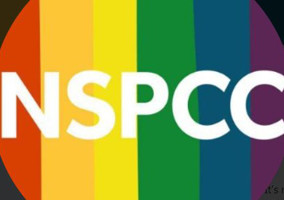NSPCC's chief executive has apologised after the charity faced severe criticism over dropping transgender activist Munroe Bergdorf from its Pride campaign.
Trustees have now commissioned a review of its processes for how it establishes relationships with supporters.
Peter Wanless, chief executive, published a statement this afternoon (12 June). He said: “We’re sorry for the hurt that has been caused by recent events with Munroe Bergdorf.
“We’re here for every child, including the LGBTQ+ community, who can contact Childline any time.”
Bergdorf said on social media: “I appreciate the formal apology @NSPCC.
“This situation has been extremely stressful and unnecessary.
“I just want to move on from the whole ordeal.”
I appreciate the formal apology @NSPCC. This situation has been extremely stressful and unnecessary. I just want to move on from the whole ordeal. https://t.co/1jPl47HVBe
— MUNROE (@MunroeBergdorf) June 12, 2019
Immediate review of processes
Wanless said the board of trustees had commissioned an immediate review of its process for establishing a relationship with supporters, and its management of these relationships.
He said: “We clearly should have been more considerate and respectful in clarifying our relationship with Munroe, and in how we ended our association with her on our recent campaign.
“We recognise that we have not provided our staff with the appropriate processes to assist them in taking decisions on opening new relationships with people who can help us to reach young people.
"I want to be clear that no blame for this matter lies with the teams who have been working with Munroe."
He concluded that he did not expect everyone to agree with the decision to drop Bergdorf from the campaign, but said the intention was to ensure NSPCC was “best equipped to support all children”.
Repairing damage to the LGBT community
Wanless said the decision to end NSPCC's work with Bergdrof was made by the board of trustees, who over the last few days had spoken to Pride in NSPCC Colleagues and Children (PINCC) and staff and the LGBT community.
He acknowledged the process had been “poorly handled”.
He said: “We feel that once the decision had been made, we acted abruptly and should have consulted on the decision and its implication more widely; not least with Munroe herself.
“We are talking with PINCC and our other equalities groups about what we can learn from this for the future.”
The statement emphasised that the decision to end the relationship with Bergdorf was not because she is transgender and said it was committed to repairing the charity's relationship with the LGBTQ+ community.
"Working with PINCC, we will endeavour to prepare a way forward to acknowledge the hurt or offence caused to our staff, volunteers and the wider LGBTQ+ community and to rebuild trust that we are an organisation that is here to support all children."
And that: "We will be seeking to work with PINCC over the coming days to help us understand how best to repair the damage we have created in our relationships with the LGBTQ+ community."
Wanless explains NSPCC’s decision
In the statement Wanless said the board decided an ongoing relationship with Munroe was “inappropriate because of her statements on the public record”.
“Which we felt would mean that she was in breach of our own risk assessments and undermine what we are here to do.
“These statements are specific to safeguarding and equality,” he added.
Civil Society News has contacted NSPCC to gain further detail about what risks and which statements from Bergdorf, Wanless was referring to.
|
Related articles











